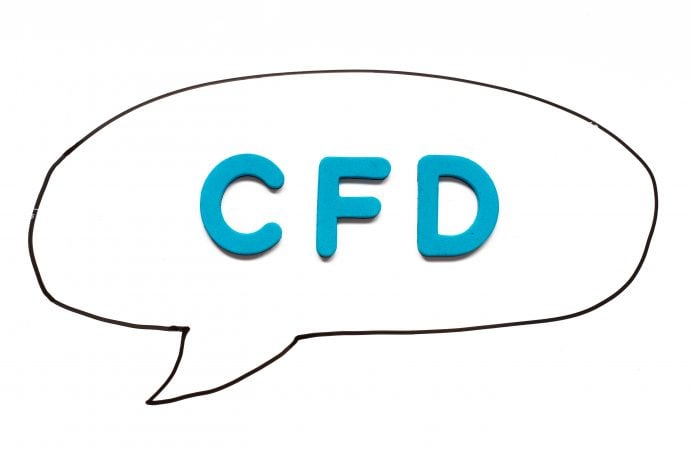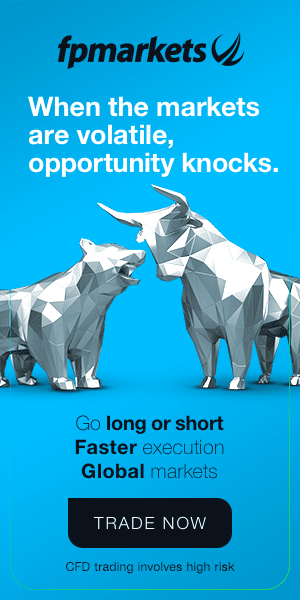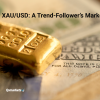Reading Time: 7 Minutes
What is a Contract for Difference (CFD)?
A CFD is a type of financial instrument, a derivative that involves two parties and pays the difference in the settlement price between when a transaction is opened and when it is closed. CFDs allow investors to trade the direction of a security’s price movement (either rising or falling markets) and are particularly popular in foreign exchange (FX) and commodities markets, as well as indices and cryptocurrencies. It’s important to understand that you never own the underlying asset class when trading CFDs; trades are based on contracts (or agreements). CFDs are also leveraged products, meaning greater returns (and losses) are possible on available equity.
5 Reasons Why CFDs Can be Confusing
- Misunderstanding the difference between CFDs and Spread Betting.
The primary distinction between CFDs and spread betting is that spread betting is mostly conducted in the United Kingdom (U.K.) and is regulated by the Financial Conduct Authority (FCA). In Europe, however, the Cyprus Securities and Exchange Commission (CySEC) is a popular regulatory body that governs CFDs. Though, CFD traders operate in most countries.
There is also a difference in the tax rules, yet both are advantageous to investors. Spread betting is generally tax-free, and CFDs are free from stamp duty in the U.K. Traders should know their tax obligations.
CFDs, nevertheless, are prohibited in the United States (U.S.). Because CFDs are considered over-the-counter (OTC) goods which do not trade via authorised public exchanges, trading them in the United States is against the law.

- CFD Trading Without a Trading Plan.
The overall trading plan is a blueprint designed to get you from point A to B as safely as possible while generating a healthy return. Of particular relevance within the trading plan is your trading strategy’s rules, as well as things like the trading strategy’s risk-management guidelines, which should include protective stop-loss orders at a minimum. Protective stop-loss orders can help mitigate risks when trading CFD financial products. Some CFD providers provide a guaranteed protective stop-loss order, which is a predetermined price that, when reached, ends the contract.
Also within the trading plan, traders are encouraged to maintain a detailed trading log that includes dates, market conditions, and volatility at the time of trading.
- Leverage and Margin.
CFDs are leveraged instruments. Leverage is closely related to margin, sometimes referred to as either deposit margin or initial margin. This refers to the quantity of currency an investor has to put up as collateral at the start of a trade. So, to simplify, the trader has to only place a percentage of the entire amount of the transaction to create a CFD position. Margin trading is used with various financial markets, such as Forex, indices, stocks, commodities, treasuries (bonds), cryptocurrencies, and exchange-traded funds (ETFs).

- Range of Financial Markets.
Some traders and investors are overwhelmed by the sheer volume of tradeable markets available in the CFD market. CFDs, as highlighted above, are based on Forex pairs, commodities, individual shares, major equity indices, and even cryptocurrencies are available.
Fortunately, FP Markets provide interactive videos that cover various topics about financial services, including CFD products, CFD trading, trading platforms, and many more. Consider visiting the FP Markets Academy, a fully regulated CFD broker with clear, concise, tutorials for a suitable starting point. Further to this, FP Markets offers competitive trading CFD accounts and, for our Forex traders, more than 60 currency pairs. Whether you’re a retail investor or a professional, FP Markets provides the full package.
- Confusing Terms.
Trading and investing terms are similar to learning a new language. Therefore, the team at FP Markets joined forces to list some of the most confusing terms to help newer traders build a foundation:
- Spread is a concept that refers to the difference in price between the bid and asks levels available in the market. The current bid is the price at which traders can sell, and the current ask is the price a trader is permitted to buy.
- Going Long; Going Short: Going long (long position) is purchasing financial assets in a way that generates a profit as the asset’s price rises. In contrast, going short (short position or shorting), is a practice whereby a trader or investor sells a financial asset which can be lucrative if the asset price declines.
- Gapping occurs when the price of a stock, or another asset, opens above or below the previous day’s close with no trading activity in between.
- Counterparty Risk: The likelihood that the opposite party in an investment, credit, or trade transaction will not fulfil their contractual commitments and default.
- Close Out: The broker automatically closes all your open positions when the current equity in your account does not meet the margin requirement.
- Negative Balance Protection: A service offered by some brokers to ensure that traders do not lose more than the balance of their trading accounts.
- Slippage is the term used to describe the variance that exists between the anticipated price of a trade and the actual price at which the trade is carried out (filled).
- Stock Market/Stock Exchange: A Stock Exchange is where stockbrokers and traders buy and sell securities based on specific rules and regulations.
- Day Trading: Day trading is the short-term purchasing/selling of CFD stocks (or any CFD product), generally over a single day. The objective is to make a small profit on each trade, which will be compounded over time.








 Access +10,000 financial
instruments
Access +10,000 financial
instruments

